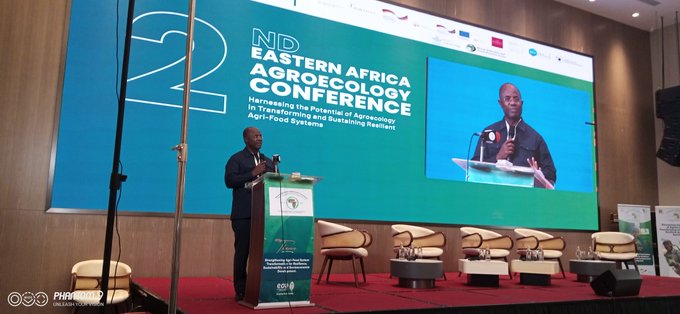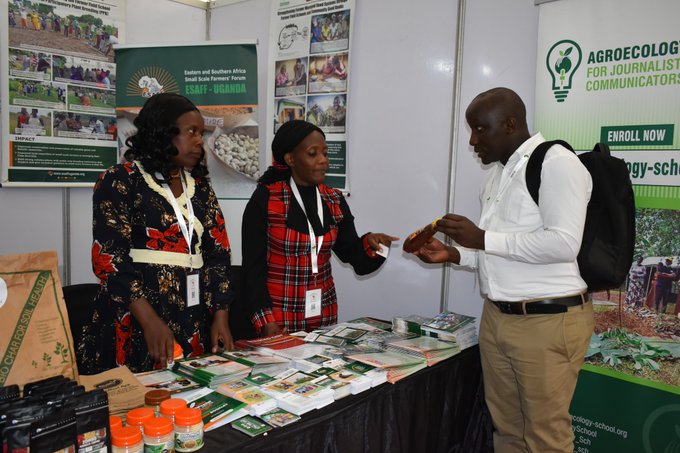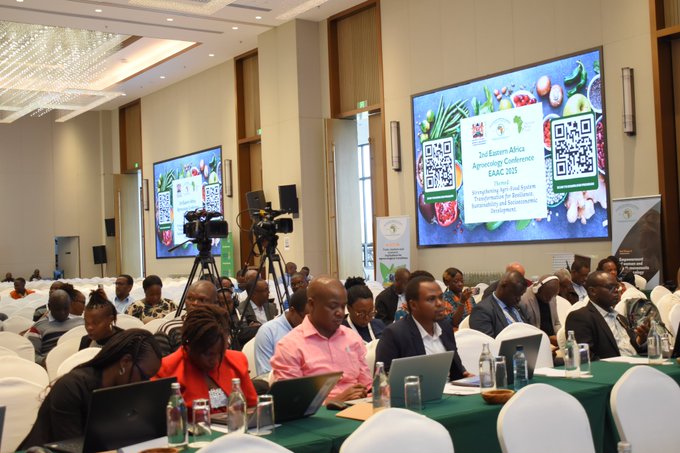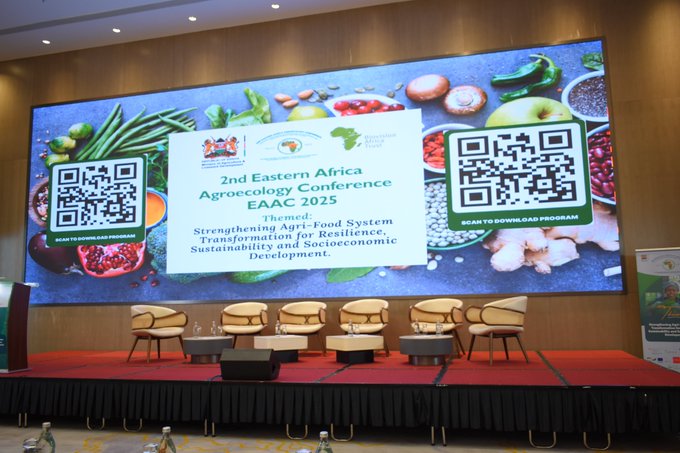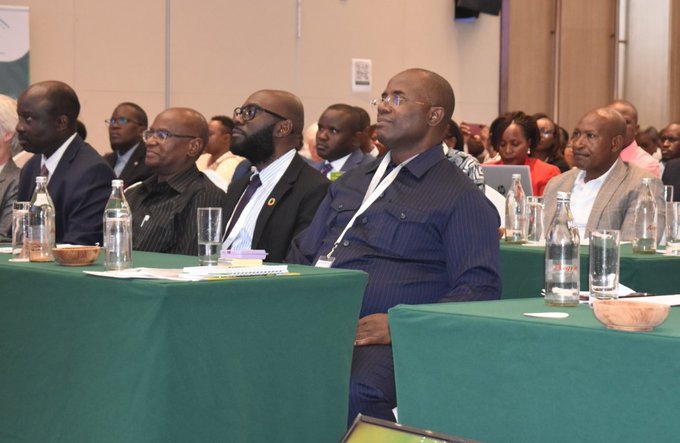NAIROBI, Kenya – Scientists are now calling for the introduction of agroecology in learning institutions for a better understanding of agricultural practice.
Naume Kalinaki, Programs Officer, Eastern and Southern Africa Small Scale Farmers’ Forum (ESAFF) Uganda, observed that there is a need to start introducing agroecology right away in academic institutions.
“This gives us more space to ensure that knowledge is sustainably and effectively transferred from one generation to another,” said Kalinaki during a parallel session at the 2nd Eastern Africa Agroecology Conference 2025.
Y News understands that agroecology is an approach that applies both ecological (the relationship between plants, animals, humans, and the environment) and social concepts and principles to the design and management of sustainable food and farming systems.
Agroecological systems are designed from the ground up with people at the centre and respond to local contexts, constraints, and opportunities.
Why agroecology should be introduced straight from primary school
And according to Kalinaki, most of the time when you look at the education sector, you are looking at fast-profit opportunities.
“But if we start introducing agroecology in the academic levels, be it primary and secondary schools, it gives us more space to make sure that knowledge is sustainably transferred from one generation to another,” added Kalinaki.
Narrowing it down to the universities, Kalinaki observed that the biggest challenge there is advocating for agroecology since a majority of people are always questioning the proof that agroecology works.
“Universities should capitalise on their platforms and research to prove that indeed agroecology works. This is aimed to prove to different stakeholders that agroecology is the real thing,” added Kalinaki.
Y News established that agroforestry is a great example of agroecology. It’s the practice of combining trees and farming; it demonstrates how food production and nature can coexist.
[VIDEO]: #FundAgroecologyWe are in Kenya this week to develop a comprehensive roadmap for a continental campaign that will;🌱:Disrupt financial flows to industrial agriculture🌱: Promote and amplify funding for agroecology🌱: Develop concrete advocacy actions, and🌱:
Grazing farm animals under trees gives them shelter and fodder while their manure enriches the soil. Planting trees on land normally used to grow cereal crops can provide another crop – be that fruit, nuts or timber.
This provides another income stream for farmers and also protects soils from erosion, as the trees’ deep roots help create a healthy soil structure.
So, this means that Agroforestry, like many agroecological approaches, is a win-win.
What did Uganda’s Minister of State for Agriculture say about agroecology
Speaking at the same event, Uganda’s Minister of State for Agriculture, Animal Industry, and Fisheries (Agriculture), Fred Bwino Kyakulaga, argued for governments to create an enabling environment for agroecology by making provisions for the budget as well as creating awareness of agroecology.
“In Uganda, we have made progress on three fronts. We have made progress on the front of agroecology as a science. We have made progress in practicing it, and we have also made progress in establishing it as a movement,” said Kyakulaga.
Hon. Fred Bwino Kyakulaga sharing his remarks during the 2nd Eastern Africa Agroecology Conference in Nairobi. He argues government to put enabling environment for Agroecology, make provisions for budget as well as creating awareness of Agroecology.
He also used the occasion to thank everyone who attended the three-day high-level conference.
“I want to thank all of you for turning out in such big numbers and also for learning that this event is not only for the East African people, but we also have people from South and West Africa, among other regions,” he added.
During the event, Y News established that at global and local levels, countries face multiple food system challenges: flooding, soil degradation, biodiversity collapse, malnutrition, and obesity.
Against this background, Intensive farming systems contribute to these problems.
How small-scale farmers in East Africa are benefiting from agroecology practices
They exhaust natural resources, focusing on short-term gains rather than the long-term sustainability that works best for the land, wildlife, and local communities.
Experts observed that there is a need for an alternative food system that is genuinely sustainable.
“The good news is, many solutions lie in agroecology.”
We are at the 2nd Eastern Africa Agroecology Conference, scheduled from March 25th to 28th, 2025, at the Argyle Grand Hotel in Nairobi under the theme: “Strengthening Agri-Food System Transformation for Resilience, Sustainability, and Socioeconomic Development.”This
On day 3 of the 2nd Eastern Africa Agroecology Conference held in Nairobi, Kenya, Christine Nabwami, a small-scale farmer from Mityana District in Uganda, shared how they are upscaling the concept of Agroecology through Community Agroecology Schools.
“This is where small-scale farmers from different groups come together to learn agroecological practices and come up with solutions to challenges that they are facing with practicing agroecology,” explained Nabwami during a side session on Farmers Voices for Agricultural Transformation.
The theme of the conference that ran from March 25 to March 28, 2025, at the Argyle Hotel was “Strengthening Agri-Food System Transformation for Resilience, Sustainability and Socio-economic Development.”
The conference served as a pivotal platform for stakeholders to explore and promote sustainable agriculture and food systems.



